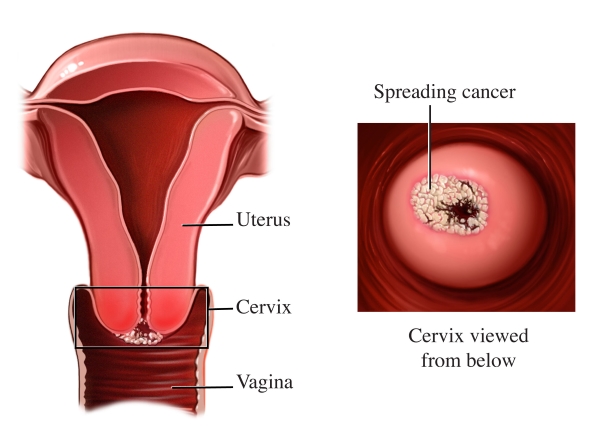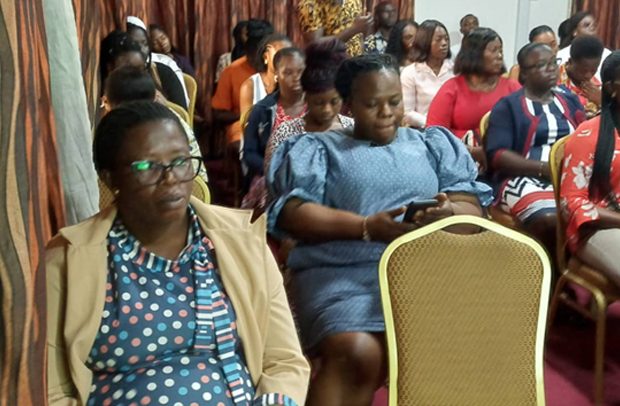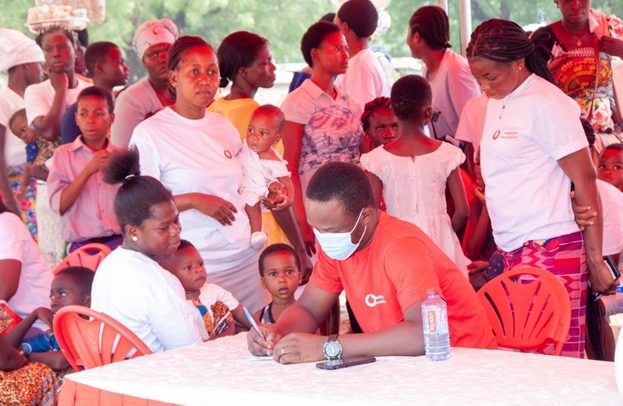
Dr. Promise Sefogah, General Secretary of the Society of Obstetricians and Gynaecologists of Ghana, has expressed concern about the increasing loss of many young women to cervical cancer in the country.
Dr. Sefogah told the Ghana News Agency in an interview that most cases are diagnosed at late stages, where very little can be done to save lives.
Cervical Cancer is the fourth most common cancer among women globally.
Dr Sefogah told the Ghana News Agency in an interview that most of the cases were diagnosed at late stages, where very little could be done to save lives.
Cervical Cancer is the fourth commonest cancer among women globally.
It is the second most common cancer in Ghana and the leading cause of death among women due to its high mortality rate.
The disease is caused by the Human Papilloma Virus (HPV), which affects the cervix of the female reproductive system.
The human papillomavirus is contracted through unprotected sex, where the virus remains in the cervix for 10 to 15 years without symptoms.
Affected women may experience abnormal vaginal bleeding and bleeding after sex, offensive vaginal discharge, back pain, and weight loss when the disease reaches its final stage.
Dr. Sefogah, who is also a Consultant Obstetrician Gynaecologist at SHAPE HEALTHCARE Specialist Medical Centre, refuted claims that some family planning methods cause cervical cancer.
He said: “For the record, Intrauterine Devices (IUDs) do not cause cervical cancer; rather, they are one of the effective ways of preventing unwanted pregnancy.”
IUDs, he explained, do not provide barrier protection. Therefore, if someone has an IUD and engages in unprotected sex with multiple partners, they are likely to be exposed to the human papillomavirus.
The Gynaecologist emphasized that getting a Pap smear screening and vaccination could save many women from the disease.
He said: “The good news about Cervical Cancer is that it can be prevented through vaccination. When we screen, we can detect the presence of the virus, and then interventions can be put in place.”
“For every woman, it is important to undergo pap smear screening every year. If you test negative, then we can recommend that you take the vaccine. Women need to be encouraged to get screened and vaccinated to save their lives,” he added.
Dr. Sefogah mentioned that despite the availability of an effective vaccine that could prevent cervical cancer, financial barriers to accessing the vaccines remained a challenge. Many women have abandoned vaccination due to the associated costs.
He called on the Government to eliminate the financial barriers to make the vaccines accessible and include them in the routine vaccination package in Ghana.
Dr. Hilda Mantebea Boye, President of the Pediatric Society of Ghana, emphasized the importance of vaccinating children before they become sexually active.
“For children, we encourage vaccination against the human papilloma virus so that from the age of nine years, they receive the necessary shots to protect them, significantly reducing their risk of infection.”
Dr. Boye, who also serves as a Maternal and Child Health advocate and a member of the Medical Women Association of Ghana, noted that despite the high death toll among women, not enough attention has been drawn to the situation.
“It is for this reason that we are engaging in advocacy through teaching and training across the country to raise awareness about the disease.
“We also provide free screening for women in collaboration with selected hospitals, including Lester Ghana, and conduct awareness campaigns in schools and markets to educate young girls and mothers.”
—————-
Explore the world of impactful news with CitiNewsroom on WhatsApp!
Click on the link to join the Citi Newsroom channel for curated, meaningful stories tailored just for YOU: https://whatsapp.com/channel/0029VaCYzPRAYlUPudDDe53x
No spams, just the stories that truly matter! 
 #StayInformed #CitiNewsroom #CNRDigital
#StayInformed #CitiNewsroom #CNRDigital
The post Ghana losing too many young women to cervical cancer appeared first on Citinewsroom - Comprehensive News in Ghana.
Read Full Story



















Facebook
Twitter
Pinterest
Instagram
Google+
YouTube
LinkedIn
RSS